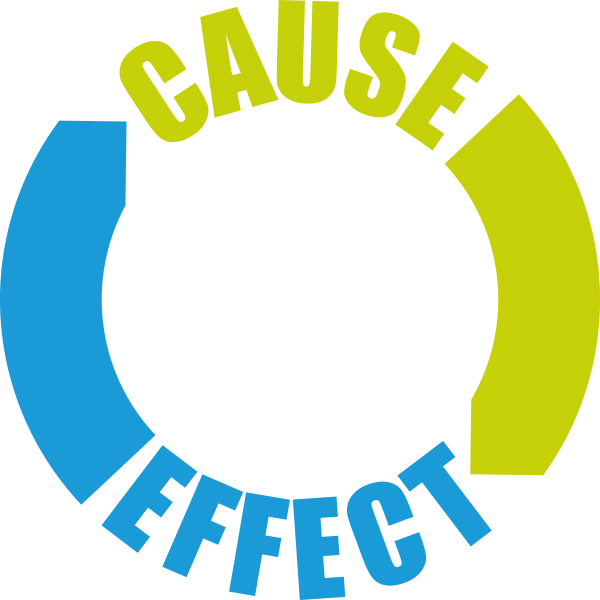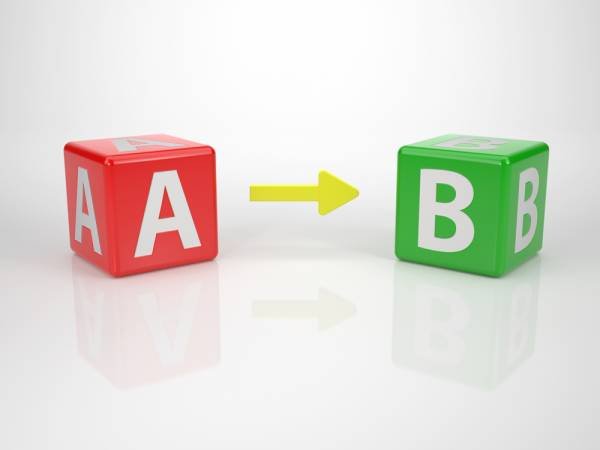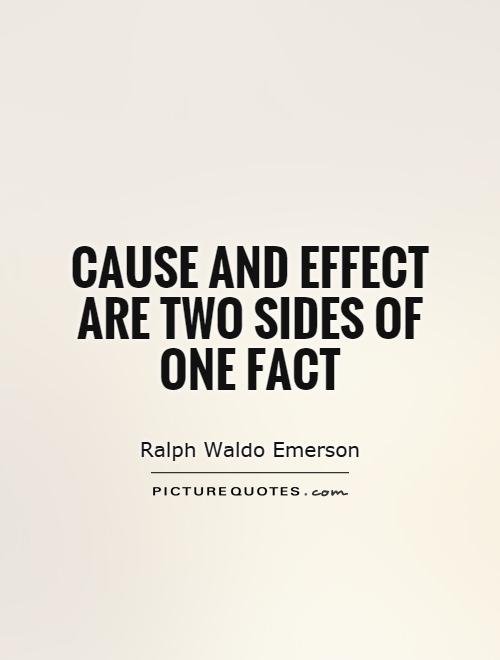Understanding the Cause and Effect of Discovering The Truth
Understanding the Cause and Effect of Discovering The Truth

Image Source
Probably the most troublesome difficulties in finding truth happen in deciding cause-and-effect relationships. Shockingly, botches are basic in such issues. One error is to see cause-and-effect relationships where there are none. Another is to see just the simple and evident cause-and-effect relationships and miss the complex or unpretentious ones. A third is to trust that causation is important just to material strengths and is random to human affairs.
Facts to be considered to avoid confusion in finding the truth:
One occasion can go before another without causing it.
A few people trust that when one occasion goes before another, it must be the cause of the other. Most superstition is established in this idea. For instance, breaking a mirror, encountering a dark feline, or strolling under a step is accepted to cause mishap. You don't need to be superstitious to commit this error.
You may trust that your educator gave an unannounced test today because understudies were heedless two days ago, though he may have arranged it toward the start of the semester. Or, then again you may trust the stock exchange fell because another president took office, when different factors may have provoked the decay.
The issue with trusting that previous occasions fundamentally cause consequent occasions is that such deduction ignores the likelihood of incident. This probability is the premise of the principle that correlation does not demonstrate causation. Keeping in mind the end goal to build up a cause-and-effect relationship, it is important to preclude fortuitous event, or possibly to put forth a powerful defense against it.

Image Source
Not all causation includes the necessity
The term causation is normally connected with a physical activity influencing a material reality, for example, a lightning jolt striking a house and the house bursting into flames and consuming. Or, then again a vase being coincidentally dropped out a window and after that tumbling to the ground and breaking.
In such cases a scientific principle or law applies, and the effect is unavoidable or if nothing else very unsurprising. That sort of causation is substantial, however it would be a slip-up to consider it the main sort. Causation additionally happens in the non-material substances we call human affairs, all the more particularly, in the procedures of emotion and thought.
That kind of causation has nearly nothing, on the off chance that anything, to do with scientific principles or laws, is never inescapable, and is regularly hard to foresee. On the off chance that we are to maintain a strategic distance from misrepresentation, we have to characterize causation in a way that spreads both the scientific domain and the domain of human affairs.

Image Source
There is always something in human affairs free will.
So far we have noticed that causation happens through drive or need in material occasions, yet through impact in non-material occasions, that is, in human affairs. Likewise, that in human affairs, effects are to some degree unsurprising however a great deal less so than in material occasions. Presently we have to consider why they are less unsurprising. The appropriate response is because people have free will, that is, the ability to react in ways that restrict even the most grounded impacts.
Free will is itself a causative factor, and one that can trump all others. This clarifies why a few people who experience childhood in the most noticeably awful of conditions, for instance, in broken, harsh families or in wrongdoing ridden neighborhoods in which the primary wellsprings of wage are tranquilize managing and prostitution, oppose all the adverse impacts and turn out to be good, dedicated, and law-withstanding.
It has been appropriately said that people would seldom be able to pick the conditions life places them in, however they can simply pick their reactions to those conditions because they have free will. In any examination of causes and effects in human affairs, the factor of free will must be considered.
Notwithstanding, having free will is no assurance that we will apply it. Actually, one factor makes such application troublesome. That factor is habit. Habit slants smokers to keep smoking, liars to keep lying, selfish people to continue being selfish, and incalculable people to negligently grasp the most recent form.

Image Source
Causation is frequently complex.
At the point when a little rock is dropped into a tranquil pool of water, it causes ripples toward each path, and those ripples can influence even far off waters. NASA specialists have discovered a comparative procedure at work in the environment: little particles noticeable all around called aerosols can have a rippling effect on the atmosphere a huge number of miles far from their source locale.
Effects in human affairs can likewise be complex. With an end goal to cut costs, the proprietor of a synthetic plant may discard chemicals in a close-by stream that streams into a waterway. This activity may bring about effects he didn't expect, including the contamination of the waterway, the slaughtering of fish, and even the contracting of malignancy by people living a long way from his plant. Those effects will be no less genuine because he didn't plan them.

Image Source

Some nice pieces there, thanks for sharing.
@juvyjabian
Glad you like it